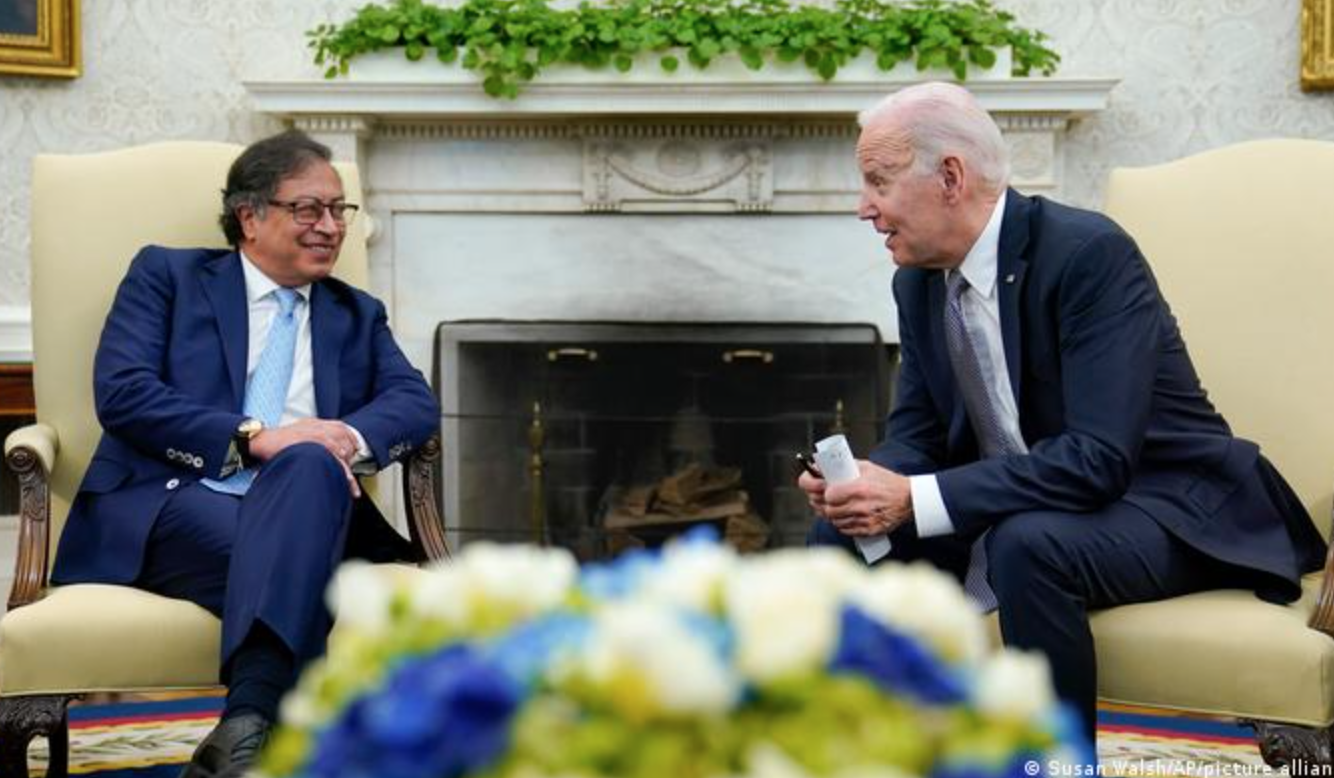In his recent visit to the United States, Gustavo Petro agreed with Joe Biden in highlighting the urgency of the climate issue. In the joint statement, the two leaders pledged to work toward electricity interconnection in the Americas, which would foster a regional market for clean energy and reduce dependence on fossil fuels.
For Petro, the summit was an endorsement of his ambitious energy transition policy. Colombia is the first oil-producing country to propose a ban on new oil drilling projects. According to a report by the Ministry of Mines and Energy, Colombia has 381 agreements in force, of which 118 are in the exploration stage, guaranteeing energy self-sufficiency until 2042. Authorities have also committed to moving away from coal mining, which is relevant in certain regions of the country.
Mining and oil activity accounts for 8% of Colombia’s gross domestic product. The transition is therefore a major macroeconomic challenge. But, sooner rather than later, these assets will be stranded, which would imply heavy economic costs due to the loss of employment and the drop in the level of activity, with its consequent fiscal, if not also financial, cost. All this obliges those who govern to plan the transition, not delay the process, and play an active role in the transformation.
Colombia is trying to employ a new policy that escapes the much-talked-about division between left and right. In Latin America, neither neoliberal governments, such as that of Guillermo Lasso in Ecuador, nor neo-developmentalist governments, such as that of Alberto Fernández in Argentina, have managed to overcome the extractivist scheme that characterizes the region. Nor have they been able to redirect funds in view of transition, so that capital continues to finance oil exploration and exploitation projects.
On the other hand, countries such as Uruguay, Costa Rica, Chile, and Colombia are moving toward a new energy model. In this context, the success of the Petro idea and, consequently, the role that the U.S. government could play in this process is crucial.
The transition is also socially beneficial. According to the latest economic report of the Economic Commission for Latin America and the Caribbean (ECLAC), by the end of the decade, the transition could create one in ten jobs. Moving forward with the transition also implies recreating a new industrialization model, moving toward electricity-intensive value chains, and attracting investments that prioritize green innovation.
Both Petro and Biden stressed the need to move forward with the transition. In order to help, the U.S. should review its policy regarding Latin America and seduce it, not with words, but with funds and by providing both assistance and technological cooperation. Rich in strategic minerals, the countries of the region, for their part, should adapt their foreign investment legislation, moving away from a quantitative approach, reintroducing technology transfer clauses, and encouraging the formation of joint ventures.
Fear of the mood of the markets cannot lead us to relegate sovereignty in energy matters, nor to keep the capital account indiscriminately open to the arrival of funds that end up feeding a green financial bubble. On the contrary, a green development bank should be established.
The global context has changed. Geopolitics is at the forefront of political and business decisions. The future is profoundly uncertain, which implies reconsidering the role of the state and understanding that it must lead the energy transition process. However, climate urgency requires greater cooperation between nations and a new attitude by the U.S. toward the region.
Something similar happened with the arrival of Franklin D. Roosevelt in 1933, who in his inaugural address proposed a new approach to Latin America. Thus, the emergence of a new perspective on economic policy began to be perceived, leaving behind the liberal vision that permeated the look of the monetary missions of the Federal Reserve System (FED) that came to the region. A new approach to development was introduced.
A few days ago, Larry Summers, one of the economists most listened to by the political establishment in Washington, wondered (in a Twitter message) about the growing disinterest of Latin American politicians in the U.S. In a recent dialogue, a group stated to him: “Look, I like your values better than I like China’s. But the truth is, when we’re engaged with the Chinese, we get an airport. And when we’re engaged with you guys, we get a lecture.”
As has happened in the past, it would be good for the Biden administration to move toward a kind of “green new deal neighbor policy”, and for the “spin doctors” to transform their prescriptions into green financing packages. The region needs to move toward a clean production model and forget about oil exploitation. With its knowledge, technology, and sources of financing, the U.S. can help the region.
However, this should not entail new restrictions on the governments of the region, nor should it impose bans on other alliances, if they allow progress toward a fairer world without oil. Bans and blockades should be imposed on capital flows to the region to finance new oil exploration to align incentives with the green transition.
*Translated from Spanish by Janaína Ruviaro da Silva












